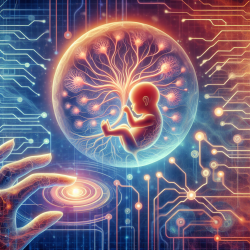In the realm of pediatric obesity and eating disorders, understanding the underlying psychological traits that contribute to weight changes is crucial for developing effective interventions. A recent study titled "Impulsivity and Reward Sensitivity Facets as Predictors of Weight Change in Children: Differences by Binge-Eating Disorder Diagnostic Status" sheds light on how these traits can predict weight changes, particularly in children diagnosed with binge-eating disorder (BED).
The Role of Impulsivity and Reward Sensitivity
Impulsivity and reward sensitivity are personality traits that have been linked to obesity and BED. Impulsivity refers to the tendency to act without forethought, often leading to rash decisions. Reward sensitivity involves the degree to which an individual is motivated by rewards, which can influence eating behaviors.
The study conducted by Valdez et al. (2023) explored these traits in a sample of nine-to-ten-year-old children across the United States. The research aimed to examine how impulsivity and reward sensitivity facets predict body mass index z-score (BMI-z) changes over a year in children with and without BED.
Key Findings from the Study
- No Significant Link for Non-BED Children: For children without BED, impulsivity and reward sensitivity did not significantly predict BMI-z changes at follow-up.
- Impact on Children with BED: In contrast, for children with BED, greater negative urgency (acting rashly due to negative emotions) and lower positive urgency (acting rashly due to positive emotions) were associated with increased BMI-z after one year.
These findings highlight the importance of addressing emotional impulsivity in interventions aimed at preventing obesity in children with BED.
Practical Applications for Practitioners
For practitioners working with children experiencing weight management issues or BED, incorporating strategies that address emotional impulsivity could be beneficial. Here are some ways practitioners can apply these findings:
- Cognitive-Behavioral Interventions: Implement cognitive-behavioral strategies that help children recognize and manage their emotional triggers that lead to impulsive eating behaviors.
- Psychoeducation: Educate both children and parents about the role of impulsivity and reward sensitivity in eating behaviors. Understanding these concepts can empower families to make informed decisions about lifestyle changes.
- Mood Regulation Techniques: Teach mood regulation techniques such as mindfulness or relaxation exercises to help children manage negative emotions without resorting to impulsive eating.
- Individualized Treatment Plans: Develop personalized treatment plans that consider a child's specific impulsivity traits and reward sensitivity levels, tailoring interventions accordingly.
The Need for Further Research
This study opens avenues for further exploration into how personality traits affect weight management in children. Future research could delve deeper into understanding how these traits interact with other factors such as family dynamics, socio-economic status, and cultural influences.
Moreover, longitudinal studies could provide insights into how impulsivity and reward sensitivity evolve over time and their long-term impact on weight management.
To read the original research paper, please follow this link: Impulsivity and reward sensitivity facets as predictors of weight change in children: Differences by binge-eating disorder diagnostic status.










